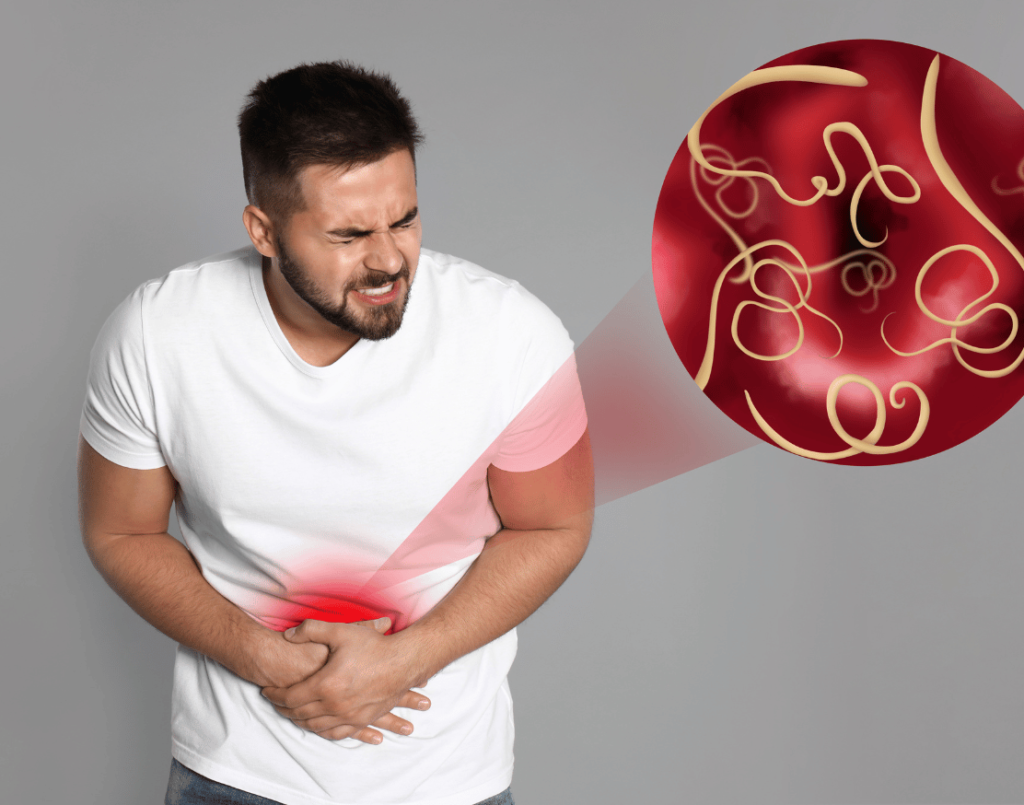Intestinal Worms

Intestinal worms, also known as parasitic worms or helminths, are a type of parasite that can infect the human digestive tract. These parasites can range from tiny microscopic organisms to much larger worms. Intestinal worm infections are prevalent in many parts of the world, particularly in areas with poor sanitation and hygiene practices. Understanding the causes, symptoms, and treatment of intestinal worms is essential for preventing and managing these infections.
Roundworms (Nematodes): These are cylindrical worms that can infect the intestines and other body tissues. The most common roundworms in humans include Ascaris lumbricoides, which causes ascariasis, and Enterobius vermicularis, responsible for pinworm infections Hookworms: These small worms, primarily Necator americanus and Ancylostoma duodenale, attach to the intestinal lining and feed on blood, potentially causing anemia.

- Roundworms (Nematodes): These are the most common type of intestinal worms in humans. They include Ascaris, which can cause abdominal pain, diarrhea, and malnutrition, and hookworms, which can lead to anemia and protein deficiency.
- Tapeworms (Cestodes): Tapeworms are flat, segmented worms that can grow to several feet in length. They can cause digestive problems and weight loss. Examples include the pork tapeworm and the beef tapeworm.
- Flatworms (Trematodes): These include parasites like liver flukes and schistosomes. They can infect the liver, intestines, and other organs, causing various health issues.
- Pinworms: These are small, white worms that commonly affect children. They cause itching in the anal area and may interfere with sleep.
- Threadworms (Strongyloides): These parasites can cause skin rashes, itching, and respiratory symptoms in addition to gastrointestinal problems.
Intestinal worm infections can be contracted through various means, such as consuming contaminated food or water, coming into contact with contaminated soil, or through the transmission of eggs or larvae from an infected person or animal. Common symptoms of intestinal worm infections include abdominal pain, diarrhea, nausea, vomiting, weight loss, fatigue, and visible worms or worm segments in stool.
Treatment for intestinal worm infections typically involves antiparasitic medications prescribed by a healthcare professional. In some cases, multiple doses of the medication may be necessary. Additionally, proper hygiene, sanitation, and food safety practices can help prevent intestinal worm infections. It’s essential to consult a healthcare provider if you suspect an intestinal worm infection to receive an accurate diagnosis and appropriate treatment.
